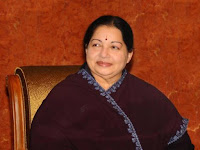The confirmation from Nepal, the current SAARC Chair, came hours after Bangladesh, Bhutan and Afghanistan followed India’s decision to stay away from the summit.
The SAARC summit of 2016 will be cancelled, a senior diplomatic source in Kathmandu told The Hindu. The confirmation from Nepal, the current SAARC Chair, came hours after Bangladesh, Bhutan and Afghanistan followed India’s decision to stay away from the November summit to be held in Islamabad.
“There is no question of holding the summit if four countries declare their unwillingness to participate. As the current SAARC Chair, Nepal has the responsibility of seeking a solution to such pre-summit disputes but under the current circumstances nothing much can be attempted. We will do the due formalities and will declare the summit of 2016 should be cancelled due to non-participation of member states,” said a Kathmandu-based diplomatic source.
The source however pointed out that Nepal has not taken any decision on the summit as it is the current SAARC Chair.
“We wish that a diplomatic breakthrough could be found with a possible change of venue but no one can guarantee success of such steps as four countries have already declared their inability to attend the summit without seeking an alternate venue,” he said.
The atmospherics for the cancellation began building up after Bangladesh, Bhutan and Afghanistan sent formal official communications to Kathmandu on September 27 almost immediately after India expressed inability to participate in the summit due to “prevailing circumstances” and stepped up diplomatic pressure on Pakistan after the September 18 attack on the military base in Uri.
Like India that cited “cross-border terrorist attacks in the region” as a reason for boycotting the summit, Bangladesh, Bhutan and Afghanistan too expressed concern about the same issue in their official notes to Kathmandu.
“The growing interference in the internal affairs of Bangladesh by one country has created an environment, which is not conducive to the successful hosting of the 19th SAARC summit in Islamabad in November 2016. Bangladesh, as the initiator of the SAARC process, remains steadfast in its commitment to regional cooperation, connectivity and contacts but believes that these can only go forward in a more congenial atmosphere,” stated a communication from Dhaka to Nepal which was shared with the media by a source.
A high-level diplomatic source from Bangladesh also confirmed to The Hindu that the formal declaration of the cancellation of the summit is imminent.
Bangladesh in recent months has been involved in a war of words with Pakistan over the war crimes trial, which led to the execution of a number of high profile political figures accused of crimes during the war of 1971.
The Royal Government of Bhutan, In a similar note to the SAARC Chair, made available to the media, stated that it “shares the concerns of some of the member countries of SAARC” and its “inability” to participate in the SAARC summit.
“While reaffirming Bhutan’s strong commitment to the SAARC process and strengthening of regional cooperation, it notes ‘the concern of the Royal Government of Bhutan on the recent escalation of terrorism in the region, which has seriously compromised the environment for the successful holding of the 19th SAARC summit in Islamabad,” the Bhutanese note said.
The Afghan case against Pakistan was made clear during President Ashraf Ghani’s latest visit to Delhi when he demanded more attention for the developments inside Pakistan that fuel violence in the region.
The cancellation of the summit is unprecedented, as four member-states have cited “terrorism” and “imposed violence” while withdrawing from the summit.
The tough Indian step was under consideration since the September 18 Uri attack, which was the second such cross- border strike in nine months after the January 2 Pathankot airbase strike that India blamed on Pakistan-based elements. India earlier accepted Pakistan’s invitation for the summit in March during a ministerial held in Kathmandu.
Following the cancellation, the future of SAARC has become uncertain even as some diplomats advised Pakistan to cooperate. Bangladesh High Commissioner Syed Muazzam Ali said that Pakistan remains part of the region and has to contribute to building regional harmony. “We would still like to continue with SAARC process and hope there will be change and Pakistan comes to the path of cooperation instead of contradiction,” Mr. Ali told the media.
Earlier on Tuesday, India summoned Pakistan High Commissioner to “firm up” its case on the Uri attack. The envoy was summoned for the second time since the Uri attack that claimed 18 lives, and was given names of the people from the Pakistani side who assisted the militants attack the army base.





































































No comments:
Post a Comment